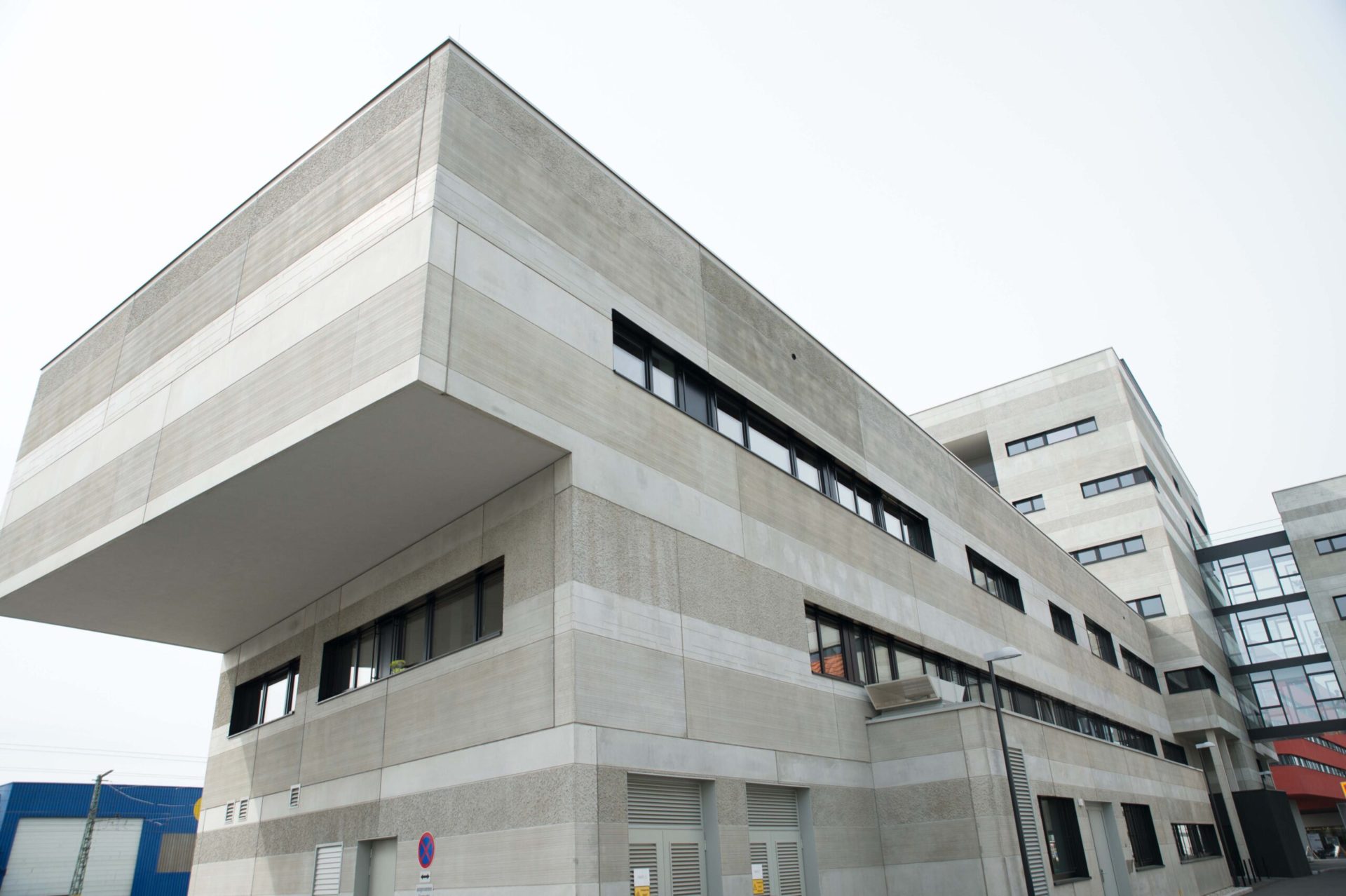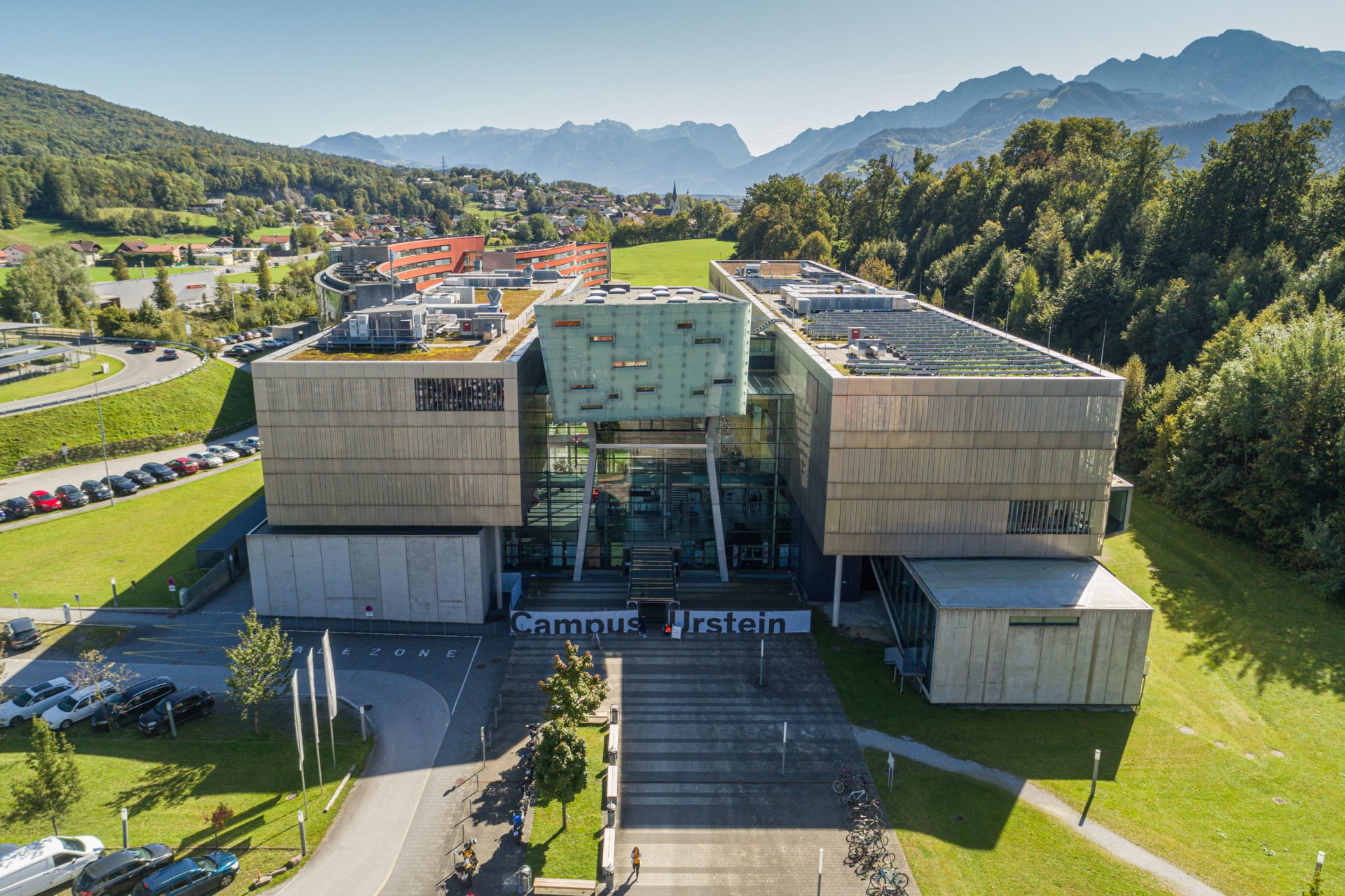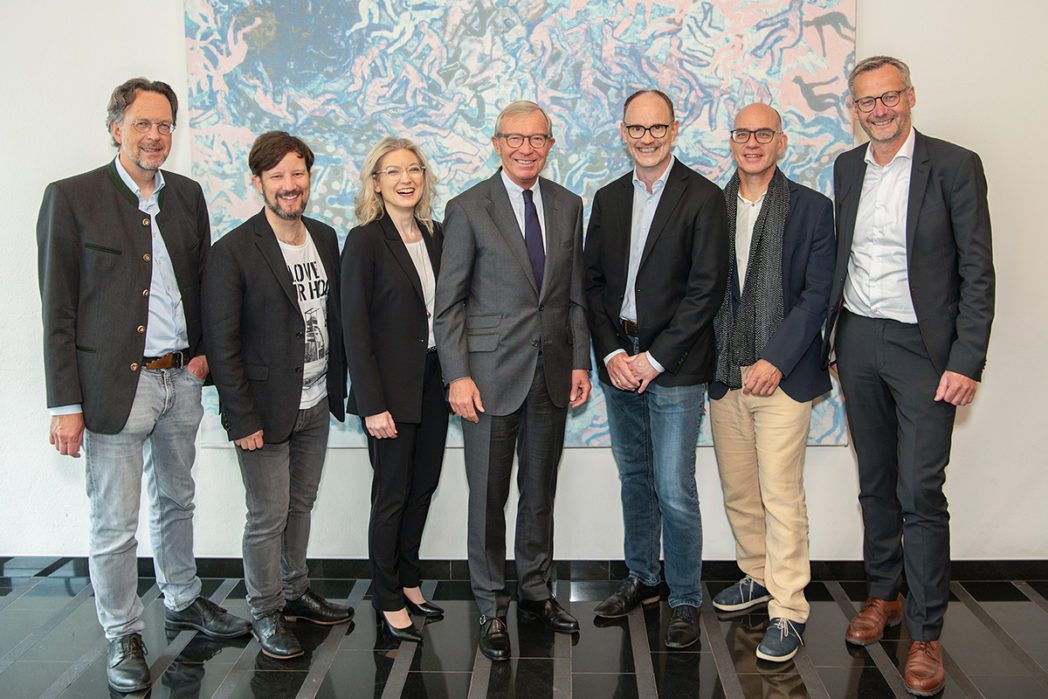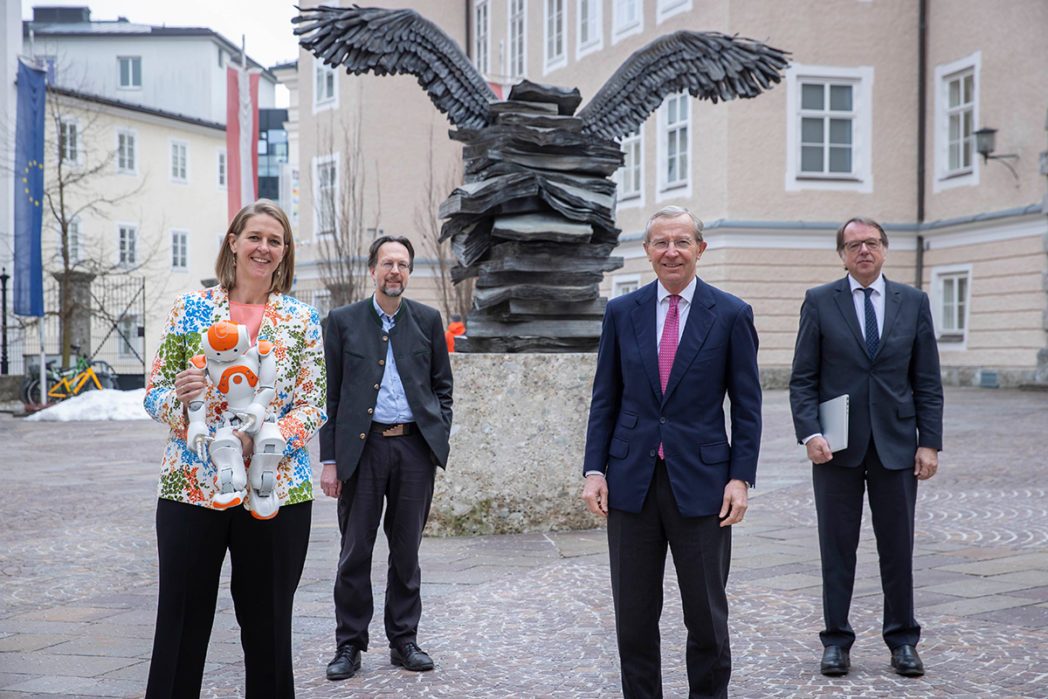part-time
FH Salzburg offers various part-time study programs:
- Information Technology and Systems Management (BA)
- Information Technology & Systems Management (MA)
- Green Building – Design & Engineering (BA)
- Smart Buildings in Smart Cities (MA)
- Professional Programmer (Further education)
- Circular Economy (Further Education Module)
In the field of Geoinformatics, the University of Salzburg offers the following programs:
The Institute for Economic Development (WIFI) offers a wide range of training and further education programs in various areas of digitalisation, from programming to marketing. You can find an overview of their offerings at the following website: www.wifisalzburg.at/digitalisierung.
Students and young professionals
At the University of Salzburg, Salzburg University of Applied Sciences (FH Salzburg), and Schloß Seeburg Private University, prospective students will find a wide range of educational opportunities in the digital field. In addition, FH Salzburg and the University of Salzburg offer programs that provide opportunities to get to know Salzburg-based companies. For example, study.work.support combines theory and practice, allowing students in the fields of Information Technology & System Management or Business Informatics & Digital Transformation to apply their acquired skills in a partner company while receiving a salary.
Study programmes
Paris Lodron University Salzburg (PLUS)
- Digitalisation– Innovation – Society (BSc)
- Artificial Intelligence (BSC)
- Computer Science (BSc)
- Computer Science (MSc)
- Applied Geoinformatics (MSc)
- Applied Image and Signal Processing (MSc, Cooperation with FH Salzburg)
- Data Science (MSc)
- Human-Computer Interaction (MSc, joint master between PLUS and FH Salzburg)
- Geographical Information Systems (supplementary study programme)
- Applied statistics and data analysis (supplementary study programme)
- Digital Media (supplementare study programme)
- IT literacy for all (supplementary study programme)
Click here for information about supplementary study programmes.
Privat University Schloss Seeburg
FH Salzburg (Salzburg University of Applied Sciences)
- Information Technology and Systems Management (BSc)
- Information Technology and Systems Management (DI)
- Green Building – Design & Engineering (BA)
- Business Informatics and Digital Transformation (BSc)
- MultiMediaTechnology (BA)
- MultiMediaTechnology (MA)
- MultiMediaArt (BA)
- MultiMediaArt (MA)
- Applied Image and Signal Processing (MSc, Cooperation with PLUS)
- Human-Computer Interaction (MSc, joint master between PLUS and FH Salzburg)
- Business Informatics (MSc)
- Informationstechnik & System-Management (DI)
- Smart Buildings in Smart Cities (DI)
Children & adolescents
An overview of all offerings is provided by MINT Salzburg (MINT is the german term for STEM meaning Science, Technology, Engineering and Mathematics): For those who already know exactly where they want to go, but especially for those who are still considering their future career path. In addition to various educational programs, there are also events for getting a taste of different fields and videos showcasing practical applications of what has been learned. The MINT initiative, initiated by the State of Salzburg, is aimed at children and adolescents, parents, educators, as well as providers of MINT activities. If you offer MINT programs that are not yet listed on the website, please feel free to contact the MINT coordination office.
If there is already a definite interest in an apprenticeship, there is also the WKO Lehrbetriebsübersicht (Chamber of Commerce Apprenticeship Company Overview) or the Salzburg Industry Apprenticeship Search. The Landesberufsschule 4 (vocational school) in Salzburg focuses on the rapid development of technical professions. Adolescents who want to become computer scientists and aim for a higher education entrance qualification can attend the branch for information technology or electronics and technical informatics at HTBLuVA Salzburg or the Informatik-HTL in St. Johann. HTBLuVA and HTL are colleges of higher vocational education.
During school, it is also possible to prepare for the professional world and get a taste of university life. The project Go4IT allows young high school students to participate in the bachelor’s degree program in computer science in parallel with their upper school years. For those who want to study computer science after completing high school, it may be possible to have the already accumulated ECTS credits recognized, thus saving time on the path to starting a career.
Kindergarten children
Questioning, researching, and discovering: Children have a natural curiosity and can be inspired by science and technology even at a young age in kindergarten. Digital literacy is an essential key skill for the future. Therefore, the “Spürnasenecke” (Curious Corner) was developed by Salzburg secondary school teachers and a chemist, where kindergarten children can playfully explore the world of technology, biology, physics, chemistry, and computer science.
In the “Spürnasenecke,” kindergarten children can engage in research and experimentation. Specifically designed furniture and various utensils were developed at the FH Salzburg Campus Kuchl, along with specialized training and further education formats for educators. The accompanying handbook contains over 80 child-friendly experiments for the little researchers, such as controlling a robot, raising tadpoles, or building a solar oven.
People aged 55 and over
The University of Salzburg offers an educational program for all interested individuals who are over 55 years old. You can expect a free choice of courses, IT support, and helpful classes. No degree or formal qualification is required.
Additionally, free “Digital Everywhere” workshops, organized by the Salzburg Adult Education Center, are available to you. This helps strengthen your basic digital skills.
Companies
The DIH West (Digital Innovation Hub West) for SMEs (small and medium-sized enterprises). Workshops and events focused on digitalization with the aim of imparting basic knowledge and networking between business and science – both online and offline. From coaching in small groups to informational events on digitalization topics – discover the free offerings to efficiently advance digitalization in your company.
12. December 2021
Innovation Lab for the Education of the Future
The digitization has transformed the way we access information, and it has particularly influenced the way young people consume information. As a result, new approaches are needed to communicate socially relevant topics. The Innovation Lab for Education aims to test cooperative and interdisciplinary methods that can be integrated into schools to make them future-ready.
10. October 2021
FHs and universities jointly train doctoral candidates
Austria’s universities and universities of applied sciences (UAS) are jointly training doctoral students. The Federal Ministry of Education, Science and Research and the Austrian Science Fund (FWF) are funding five new joint doctoral programs with one million euros each in Graz, Linz, Salzburg, Vienna, and Wiener Neustadt.
17. December 2020
Research meets Business: The DIH West
The Digital Innovation Hub (DIH) West supports SMEs from Western Austria in their digital transformation through a collaboration of universities, interest groups, and companies from Salzburg, Tyrol, and Vorarlberg. The range of services includes educational offerings, coaching sessions, and joint working groups.
16. December 2020
New Josef Ressel Center: How to connect complex systems
The new Josef Ressel Center at the Salzburg University of Applied Sciences is researching how systems can be built to reliably function in conjunction with other systems.
17. October 2019
Data Science – Students Speed Dating with Companies
He lives in a complex world full of logical connections. Since the winter semester of 2018, Christian Borgelt has been working as a professor of Data Science at the University of Salzburg. His research professorship is funded by the state and city of Salzburg, as well as the Federation of Austrian Industries. We spoke with him about Deep Learning, Data Science, and problem-oriented work.





